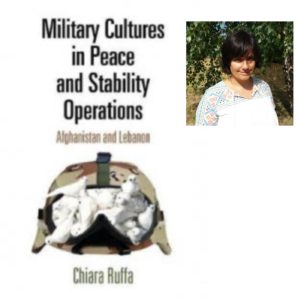Podcast: Play in new window | Download
Subscribe: RSS
 Mark Braude is a historian whose specialty is French history. He’s written a new book on Napoleon Bonaparte’s time on Elba and we discussed the book.
Mark Braude is a historian whose specialty is French history. He’s written a new book on Napoleon Bonaparte’s time on Elba and we discussed the book.
2:30 – Mark talks about his start in French history and how he started writing about Napoleon.
4:06 – Mark talks about the book.
6:45 – Mark talks about ideas on why Napoleon was sent to Elba. We talk about how the smaller characters in the book also become very interesting.
17:45 – We talk about French taverns and their interplay with public opinion.
20:59 – Mark talks about the historical valleys between periods of war.
22:35 – Mark talks about his research materials.
27:00 – Mark talks about a prison he visited on Elba where Napoleon had stayed before it was a prison and how this visit connects to the book.
33:24 – Mark talks about why no one has written on this subject before.
October 16, 2018 515am
43:53 – Mark talks about the women in Napoleon’s life.
49:06 – Mark talks about how he developed his skills in writing good narrative non-fiction.
53:18 – Mark talks about his research into the Michelin company.
55:59 – Mark has a website, markbraude.com
Links of interest
For more “Military History Inside Out” please follow me on Facebook at warscholar, on twitter at Warscholar, on youtube at warscholar1945 and on Instagram @crisalvarezswarscholar
Guests: Mark Braude
Host: Cris Alvarez
Tags: military, history, military history, conflict, war, interview, non-fiction book, Napoleon, British, French Empire, Elba, Campbell, Navy, Bonaparte

 Charles Glass is a broadcaster, journalist and writer. Early in his career he worked in the ABC News Beirut bureau with Peter Jennings. He covered the October Arab-Israeli War on the Egyptian and Syrian fronts and the civil war in Lebanon. He was ABC News Chief Middle East correspondent from 1983 to 1993. He’s been a freelance writer since then covering hot spots around the world. He spoke to me about his latest book on two British spies who operated in WWII France.
Charles Glass is a broadcaster, journalist and writer. Early in his career he worked in the ABC News Beirut bureau with Peter Jennings. He covered the October Arab-Israeli War on the Egyptian and Syrian fronts and the civil war in Lebanon. He was ABC News Chief Middle East correspondent from 1983 to 1993. He’s been a freelance writer since then covering hot spots around the world. He spoke to me about his latest book on two British spies who operated in WWII France. Dr. Chiara Ruffa has recently published a book about military culture. It’s based on her research with French and Italian military units that had deployed to Lebanon and Afghanistan. I spoke to her about the book.
Dr. Chiara Ruffa has recently published a book about military culture. It’s based on her research with French and Italian military units that had deployed to Lebanon and Afghanistan. I spoke to her about the book.